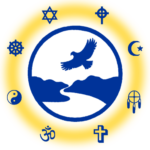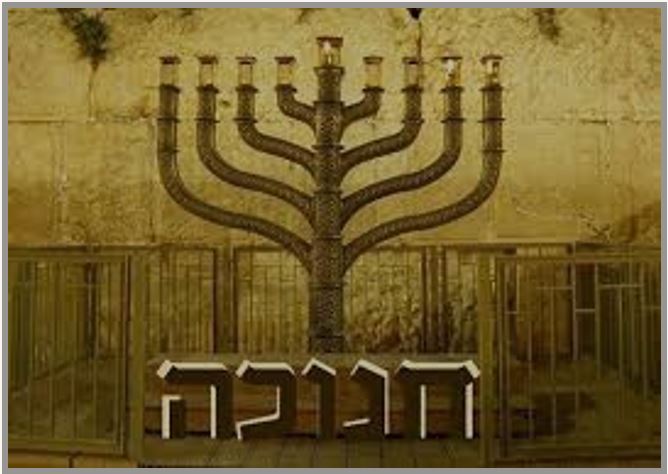The Martyrs
Antiochus returned from Egypt enraged by Roman interference with his ambitions. When he heard what had taken place in Jerusalem, he ordered his army to fall upon the Jews. Thousands of Jews were killed. Antiochus then enacted a series of harsh decrees against the Jews. Jewish worship was forbidden; the scrolls of the Law were confiscated and burned. Sabbath rest, circumcision and the dietary laws were prohibited under penalty of death. Even one of the respected elders of that generation, Rabbi Eliezer, a man of 90, was ordered by the servants of Antiochus to eat pork so that others would do the same. When he refused they suggested to him that he pick up the meat to his lips to appear to be eating. But Rabbi Eliezer refused to do even that and was put to death.
There were thousands of others who likewise sacrificed their lives. The famous story of Hannah and her seven children happened at that
time. Antiochus’s men went from town to town and from village to village to force the inhabitants to worship pagan gods. Only one refuge area remained and that was the hills of Judea with their caves. But even there did the Syrians pursue the faithful Jews, and many a Jew died a martyr’s death.
Mattityahu
One day the henchmen of Antiochus arrived in the village of Modiin where Mattityahu, the old priest, lived. The Syrian officer built an altar in the marketplace of the village and demanded that Mattityahu offer sacrifices to the Greek gods.
Mattityahu replied, “I, my sons and my brothers are determined to remain loyal to the covenant which our G d made with our ancestors!” Thereupon, a Hellenistic Jew approached the altar to offer a sacrifice. Mattityahu grabbed his sword and killed him, and his sons and friends fell upon the Syrian officers and men. They killed many of them and chased the rest away. They then destroyed the altar. Mattityahu knew that Antiochus would be enraged when he heard what had happened. He would certainly send an expedition to punish him and his followers. Mattityahu, therefore, left the village of Modiin and fled together with his sons and friends to the hills of Judea. All loyal and courageous Jews joined them. They formed le- gions and from time to time they left their hiding places to fall upon enemy detachments and outposts, and to destroy the pagan altars that were built by order of Antioc
hus.
The Maccabees
Before his death, Mattityahu called his sons together and urged them to continue to fight in defense of G d’s Torah. He asked them to follow the counsel of their brother Shimon the Wise. In waging warfare, he said, their leader should be Judah the Strong. Judah was called “Maccabee,” a word composed of the initial letters of the four Hebrew words Mi Kamocha Ba’eilim Hashem, “Who is like You, O G d.”
Antiochus sent his General Apolonius to wipe out Judah and his followers, the Maccabees. Though greater in number and equipment than their adversaries, the Syrians were defeated by the Maccabees. Antiochus sent out another expedition which also was defeated. He realized that only by sending a powerful army could he hope to defeat Judah and his brave fighting men. An army consisting of more than 40,000 men swept the land under the leadership of two commanders, Nicanor and Gorgiash. When Judah and his brothers heard of that, they exclaimed: “Let us fight unto death in defense of our souls and our Temple!” The people assembled in Mitz- pah, where Samuel, the prophet of old, had offered prayers to G d. After a series of battles the war was won.
The Dedication
Now the Maccabees returned to Jerusalem to liberate it. They entered the Temple and cleared it of the idols placed there by the Syrian vandals. Judah and his followers built a new altar, which he dedicated on the twenty fifth of the month of Kislev, in the year 3622 (139 B.C.E.).
Since the golden Menorah had been stolen by the Syrians, the Maccabees now made one of cheaper metal. When they wanted to light it, they found only a small cruse of pure olive oil bearing the seal of the High Priest Yochanan. It was sufficient to light only for one day. By a miracle of G d, it continued to burn for eight days, till new oil was made available. That miracle proved that G d had again taken His people under His protection. In memory of this, our sages appointed these eight days for annual thanksgiving and for lighting candles.
After Chanukah
The brightness of the first Chanukah light had dwindled down. But the holy fires on the altar burnt again in the Beit Hamikdash, from morning to morning, as prescribed by the Law. The priests were again busily officiating in the old customary ways, and day in, day out they prepared the offerings. Order and peace seemed established.

